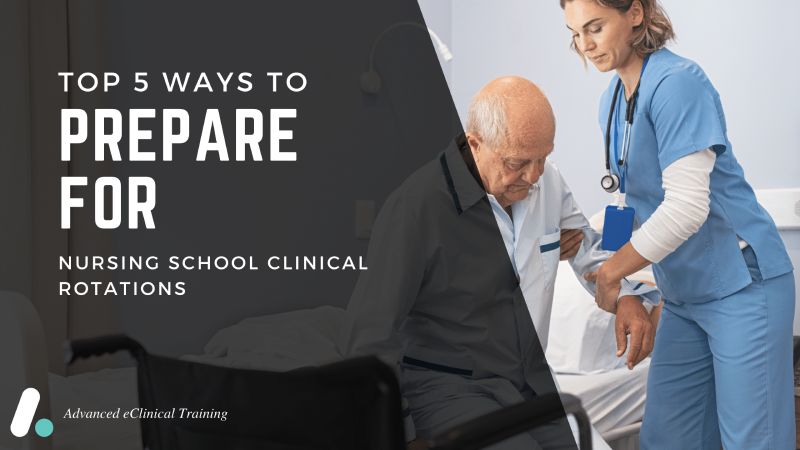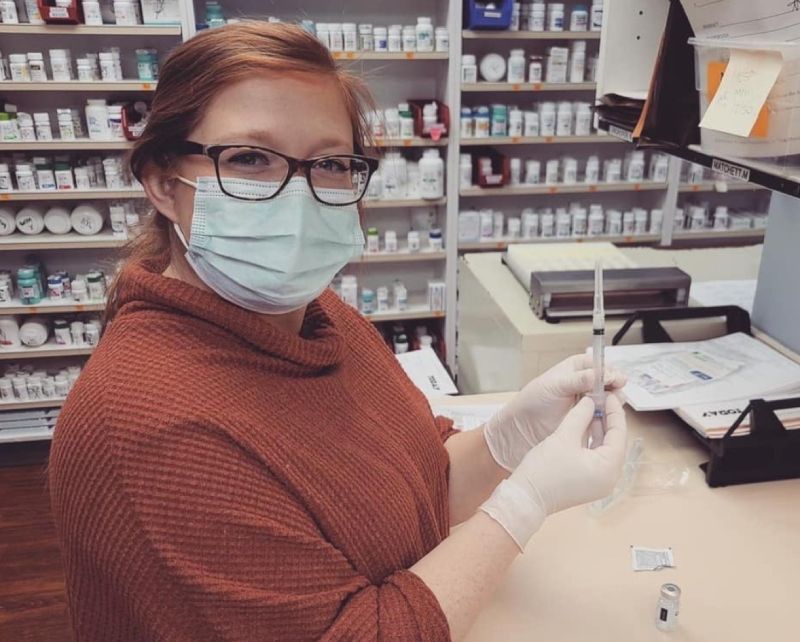10 Common Medical School Interview Questions & How to Answer Them
The medical school interview is one of the final steps in the admissions process. It’s also one of the most important. At this stage, schools have already evaluated your academic qualifications and MCAT scores and want to get to know who you are beyond your application. The interview is also their opportunity to assess whether you have the qualities needed to handle the challenges that come with both medical school and a career as a physician.
To help you prepare, we’ve compiled some of the most common medical school interview questions, along with background on why they’re asked, how to approach your responses, and sample answers to get you started.
What to Know About the Medical School Interview
Once your application has been reviewed and earmarked to move forward, you’ll be invited to interview. The format varies by program, but some of the most common types include:
- One-on-one interview: An individual meeting with a single interviewer; often a faculty member, one of the admissions committee, or local physician.
- Group interview: A meeting where multiple applicants are interviewed together. During this time, your group may be asked to discuss a topic or work together to solve a problem.
- Panel interview: A format where an individual is interviewed by a group of two or more people at once. Each panelist may ask different questions or follow up based on your answers.
- Multiple Mini Interview (MMI): A series of between 6 and 10 timed “stations.” At each one, interviewees are paired with a new interviewer and prompt — frequently an ethical dilemma, situational question, or scenario.
In addition to varying formats, medical school interviews are typically conducted either in-person or virtually. Some schools may give you a choice between the two options, while others will require either one or the other. Though rare, you may be asked to complete an asynchronous virtual interview, which involves video recording answers to pre-determined questions for committees to review at a later time.
Interview Timeline
Medical school interview invitations usually begin rolling out in late summer or early fall, but the process can stretch well into the winter or even early spring. That said, each school sets its own timeline, so it’s important to check the details for every program you apply to. Schools with rolling admissions tend to fill spots as interviews happen, so securing a meeting earlier in the season can be an advantage.
How to Prepare for Your Med School Interview
A strong interview performance can be the deciding factor in whether or not you receive an acceptance letter, so it’s in your best interest to arrive prepared. While every interview is just a little bit different, the right preparation can help you go into your appointment feeling confident, composed, and ready to make a good impression.
- Review your application. During the interview, you’ll likely be asked about the information you provided when you applied. Re-familiarize yourself with your personal statement, extracurricular activities, research and/or clinical experiences, and volunteer roles ahead of time. Make sure you can speak intelligently about these parts of your application and reflect on how they shaped your path to medicine.
- Practice common interview questions. Familiarity builds confidence. Practice answering the questions included in the next section of this blog post, preferably out loud and with a friend, mentor, or advisor who can offer feedback. You don’t need to memorize a script but having an idea of how you want to answer each question will help you come across as articulate and authentic.
- Stay informed on healthcare topics. Some interviewers may ask for your thoughts on current events or trends in healthcare. You don’t need to be an expert but having a basic awareness of the issues that are at the forefront of medical discourse can help you give thoughtful answers.
- Research the school. In addition to finding out why you want to pursue a career as a physician, schools are also interested in hearing about why you want to attend their program specifically. Being able to cite reasons such as identifying with the mission and values or interest in their curriculum structure, available research opportunities, and student organizations demonstrates genuine interest.
- Work with a mentor. A mentor, especially one who has successfully gone through the medical school admissions process, can provide invaluable insight, encouragement, and honest advice. Since they know what it takes to ace the interview, be sure to ask about preparation tips, strategies that worked during the interview, and what to expect from the experience.
10 Medical School Interview Questions
1. Why do you want to be a doctor?
- Why they ask: Admissions committees want to understand your motivation and ensure it’s rooted in genuine interest.
- How to answer: Use a personal story or specific experiences that shaped your decision to pursue medicine. Emphasize what drew you to the profession while avoiding generalities like “I want to help people.”
- Sample answer: “I’ve always loved science, but it wasn’t until I volunteered at a children’s hospital in college that I really saw the human side of medicine. Watching doctors care for families during some of their hardest moments showed me how powerful compassionate care can be. That experience, combined with my interest in problem-solving, confirmed that medicine is the right path for me.”
2. Tell me about yourself.
- Why they ask: This open-ended prompt helps interviewers get to know your personality and learn about your background, values, and interests.
- How to answer: Give a concise overview of who you are, from both a professional standpoint and as a person. Touch on your background, academic focus, and key experiences.
- Sample answer: “I’m originally from a small town in Oregon and studied biology and public health at UCLA. I’ve spent the last few years volunteering in a free clinic, doing research on diabetes prevention, and mentoring pre-med students. Outside of academics, I love hiking and playing the piano.”
3. What are your greatest strengths?
- Why they ask: This question helps interviewers understand what qualities you bring to the table.
- How to answer: Pick 1–2 strengths relevant to healthcare (such as empathy, communication, resilience) and share a short story or provide an example that shows how you’ve demonstrated these traits.
- Sample answer: “One of my biggest strengths is remaining calm and focused in high-pressure situations. As an EMT, I learned how to stay composed while assessing patients quickly and communicating clearly with my team. That experience taught me the value of preparation, teamwork, and staying grounded while under stress.”
4. What is your biggest weakness?
- Why they ask: Medical schools aren’t looking for perfection. They want to see that you’re self-aware, reflective, and willing to grow.
- How to answer: Choose a real weakness (but not a red flag) and explain how you’re actively working to improve.
- Sample answer: “I used to struggle with delegating tasks because I felt responsible for doing everything myself. In group settings, this sometimes led to burnout. I’ve been working on this by practicing clearer communication, trusting others more, and focusing on collaboration. It’s made me a more effective team member.”
5. Describe a time when you worked as part of a team.
- Why they ask: Medicine is highly collaborative, and interviewers want to know that you can communicate, make compromises, and lead or support effectively in a team setting.
- How to answer: Pick a specific team experience (in school, work, or while volunteering) and focus on your role, how you contributed, and what the outcome was. Be sure to highlight your communication and teamwork skills.
- Sample answer: “During my public health internship, our team was tasked with designing a nutrition workshop for underserved families. I coordinated with a dietitian and a translator, helping create culturally relevant materials. By listening to each team member and staying organized, we ran a successful, well-attended event.”
6. What do you think will be the most challenging part of medical school?
- Why they ask: Interviewers want to know if you’ve thought realistically about what lies ahead, and whether you’re mentally prepared to face those challenges.
- How to answer: Acknowledge a specific challenge (such as the academic rigor, emotional toll, long hours, and so on) and explain how you plan to manage it.
- Sample answer: “I think the volume and pace of learning will be an adjustment, especially in the first year. But I’ve developed strong study systems and a good support network, and I’m confident I can adapt. I also remind myself of why I’m doing this, which helps keep me grounded.”
7. How would you handle a situation where a patient refuses treatment?
- Why they ask: Interviewers want to know if you respect patient autonomy and whether you’re capable of navigating complex ethical situations with empathy.
- How to answer: Acknowledge the importance of informed consent and communication. Emphasize empathy, understanding patient values, and shared decision-making.
- Sample answer: “I’d start by ensuring the patient fully understands the risks and benefits of the treatment. Then I’d ask about their concerns and try to find common ground. I believe respecting patient autonomy is key, even if their choice differs from medical advice.”
8. Tell me about a time you made a mistake.
- Why they ask: Everyone makes mistakes, but how you handle them shows maturity, accountability, and emotional intelligence.
- How to answer: Be honest about a real, but non-critical mistake. Explain how you took responsibility and what you learned from it.
- Sample answer: “During a research project, I mislabeled some data files, which caused delays in analysis. I owned the mistake, informed my mentor, and worked extra hours to fix it. Since then, I’ve developed more rigorous documentation habits. It taught me the importance of double-checking and transparency.”
9. What will you do if you don’t get accepted to medical school this year?
- Why they ask: They want to see your perseverance and whether you have a thoughtful backup plan (not that you’re hedging your commitment).
- How to answer: Express that medicine is your long-term goal and share how you’d continue strengthening your application.
- Sample answer: “Medicine is my calling, and I’d reapply with even more determination. I’d seek feedback, enhance my clinical experiences, and possibly pursue a master’s in public health or biomedical sciences to strengthen my academic background.”
10. Why should we choose you?
- Why they ask: This is your chance to make a final, persuasive case for your candidacy. They want to see confidence and a clear fit with their program.
- How to answer: Summarize your strengths, experiences, and values. Emphasize how you align with the school’s mission and what you’ll contribute to the community.
- Sample answer: “I bring a strong academic foundation, deep compassion for underserved communities, and a collaborative mindset shaped by my team-based experiences. I’m drawn to your school’s emphasis on service and innovation, and I’m excited to contribute both in and outside of the classroom.”
Tips for Interview Success
You’ve done the prep work, and now you’re ready to ace your medical school interview. To really help you knock it out of the park, here’s what to do during and after your meeting.
During the Interview
- Be authentic and enthusiastic. Remember: Admissions committees aren’t just evaluating your qualifications, they want to see who you are as a person. Let your passion for medicine come through naturally by speaking honestly about your experiences, goals, and values.
- Practice active listening. Pay close attention to each question, and don’t rush to answer. If something isn’t clear, it’s okay to ask for clarification. Thoughtful responses carry more weight than rehearsed ones.
- Use the STAR method when applicable. For situational or behavioral questions (that is, ones that start with “Tell me about a time when…”), structure your responses using the STAR method:
- Situation: Briefly describe the context
- Task: What were you trying to accomplish?
- Action: What did you do?
- Result: What was the outcome?
- Treat everyone with professionalism. From admissions staff to student ambassadors, treat everyone you meet with respect and gratitude. Admissions teams often consult with a variety of people when evaluating candidates.
- Prepare thoughtful questions to ask your interviewer(s). At the end of the interview, facilitators will most likely leave time to answer any questions you have for them. Asking well-thought-out questions shows genuine interest in the program and gives you the chance to make sure the school is a good fit for you. Questions such as the following are both informative and make a good impression:
- What kinds of research opportunities are available to first- and second-year students?
- What resources does the school offer to support student mental health and well-being?
- How does the administration respond to student feedback?
- Are there any new initiatives or changes on the horizon for the program?
After the Interview
- Send a thank-you note. Follow up with a brief, personalized thank-you email within 24–48 hours. Express appreciation for the opportunity and mention something specific you enjoyed about the conversation.
- Reflect on what went well — and what didn’t. Take a few minutes to jot down what you learned about the school and how you felt about the interview overall. Reflection can help guide your rank list (if you’re applying via the American Medical College Application Service) and improve your performance in future interviews.
- Stay professional on social media. Even after the interview is over, how you conduct yourself still matters. Avoid posting about interview specifics or sharing any confidential information. Schools expect discretion and maturity.
- Keep the momentum going. If you’re interviewing at multiple schools, continue preparing for upcoming interviews, using what you learned from previous ones to guide your preparation. Each conversation is an opportunity to grow and refine your message.
The medical school interview is your chance to stand out and, with the right preparation, you can approach it with confidence. By understanding the interview format, practicing your responses, and reflecting on the path you’ve taken into medicine, you’ll be better equipped to make a positive, lasting impression.
If you’re looking for additional support on your path to med school, consider joining ACT’s Pre-Medical Mentorship Program. You’ll receive one-on-one guidance from experienced medical professionals who can help you navigate every stage of the admissions process, including interview prep. Or, if you’re looking to strengthen your application, our pre-med certificate programs are a great way to deepen your clinical knowledge and become a more competitive candidate.
Ready to get started? Enroll today.


